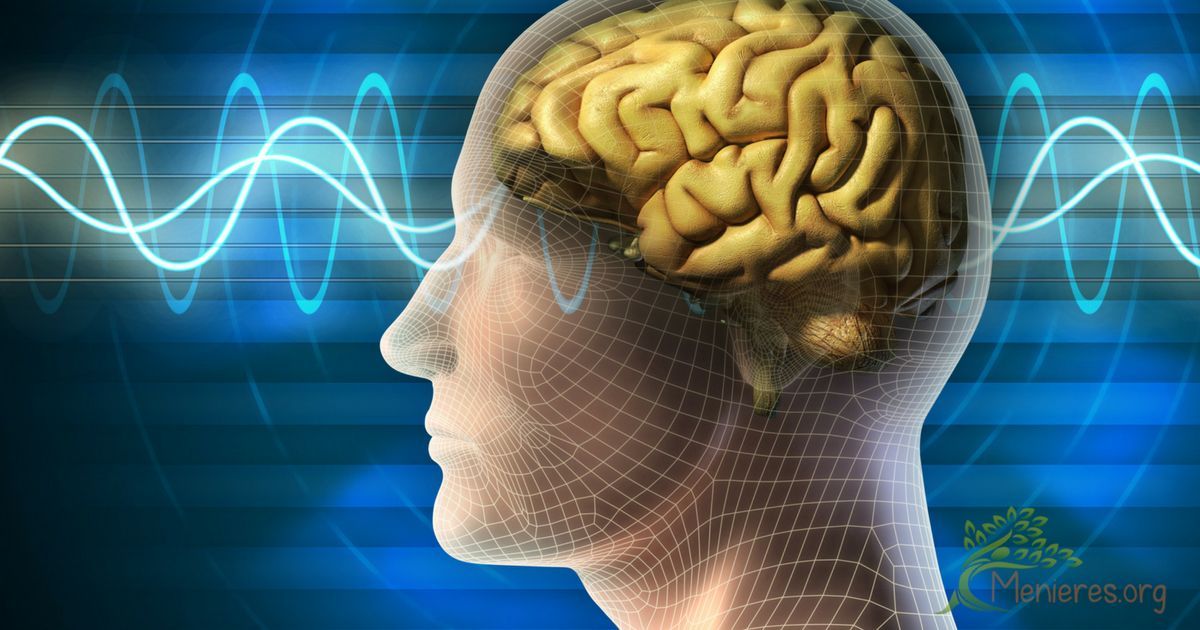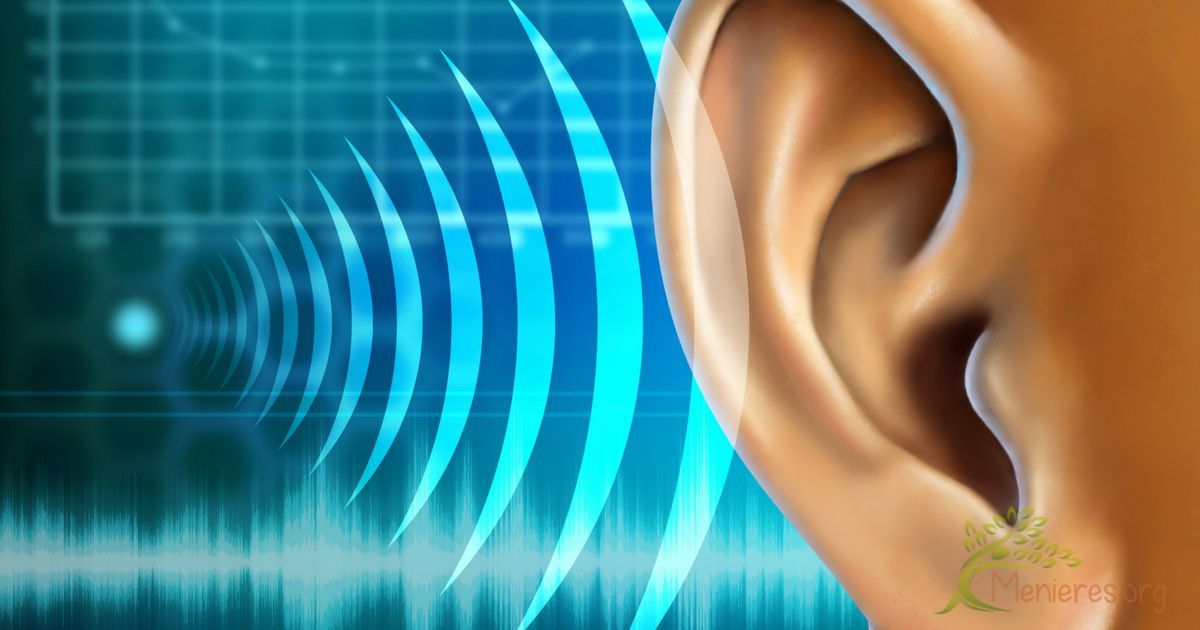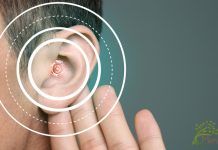
When you have a condition that has no known origin, it makes it hard to find an effective treatment. Many times, you’re left with trying to suppress symptoms rather than stopping them entirely: Such is the case with Meniere’s disease. Meniere’s is a rare, chronic disorder that affects a person’s balance and hearing. Only .2% of the population receive a Meniere’s diagnosis. The rarity of the condition ends up making the efforts to find effective treatments and medications more difficult.
Meniere’s Disease: What’s Behind the Curtain

If we pull back the curtain of a Meniere’s Disease diagnosis, we find someone who has never heard of this condition and has no clue exactly what the prognosis is as for daily living. It’s also frightening when your doctor says, “There’s no known cure.” The best way to overcome your fears is by learning about Meniere’s symptoms, triggers, and medications that can improve how you feel.
Classic Symptoms of Meniere’s Disease

There are four classic symptoms of Meniere’s Disease that a doctor looks for when taking your history and doing an exam. Unfortunately, each one of these symptoms can point to another physical problem altogether. The key is seeing all of them manifest in a patient, sometimes individually over time and sometimes in tandem.
Meniere’s Disease begins in the inner ear with a fluid imbalance. This causes:
1. Vertigo: Long lasting dizzy spells are what gets a person to a physician’s office. Meniere’s vertigo is not like a short loss of balance. The swirling, moving sensation in an attack lasts 20 minutes or more (sometimes all day!). Sometimes vertigo becomes so severe as to cause a drop attack. This is where someone drops to the floor, unable to get up. Drop attacks also often manifest in severe nausea.
Some people are fortunate in that their drop attacks are rare. Two-thirds of all Meniere’s patients find their vertigo subsides with time. There are three other pesky symptoms that may not go away ever.
Other Conditions that may Cause Vertigo: Anxiety, circulation problems, dehydration, poor diet, brain disorders, injury to the head or neck, and ear infections.
2. Hearing Loss: People with Meniere’s often experience hearing loss during an attack. Over time, hearing loss outside an attack may develop. It is so slight at first you may not even realize it. Hearing loss begins with sounds in lower frequencies but slowly grows to other frequencies. While few people with Meniere’s become deaf, long-term sufferers often have severe hearing issues.
Other Conditions that may Cause Hearing Loss: aging, meningitis, shingles, diabetes, hypertension, ear infections, and abnormal bone growth in the ear.
3. Tinnitus: Otherwise known as ringing in the ear, people with Meniere’s sometimes experience an internal sound. This may manifest as a hiss, consistent musical note, buzz, or a roar. Tinnitus may alter slightly in any vertigo attack, or it may disappear.
Other Conditions that may Cause Tinnitus: Normal aging, Diabetes, ear infection, TMJ (jaw dysfunction), head injury, medications, cardiovascular disease, and TBI (traumatic brain injury).
4. Stuffy Ear: A person with Meniere’s may feel like one ear has water in it or there’s pressure there. Swallowing or chewing gum does not ease this sensation. This happens when the Eustachian tube in the ear is not functioning effectively. That means the pressure in your ear is off-kilter. This can exasperate the sense of dizziness.
Other Conditions that may Cause Stuffy Ear: Ear infection (including swimmer’s ear), sinus infections, allergies, or injury.
Meniere’s Disease Triggers

Medications for Meniere’s cannot fix things that trigger attacks. They can, however, lessen the severity of attacks or the frequency. Hand-in-hand with medicines, you can also figure out triggers that start an episode or make matters worse. Below are examples of what to watch for:
- Avoid turning your head too quick in either direction without also turning your body.
- Watch for bright lights and flashes. Ask that people not take a flash picture of you without warning.
- Monitor your food intake. Some people find a lot of salt, alcohol, or caffeine changes their experiences.
- Rapid pressure changes which happen when flying or driving up steep inclines.
Beyond these, you may well find personal triggers unique to you. Make a note of them and communicate this information to family, friends, and coworkers.
Medications for Meniere’s Symptoms

There is no one medication that allays all the symptoms of Meniere’s Disease. Rather, there are both over-the-counter and prescription medications that target symptoms to decrease them and increase the time between Meniere’s vertigo attacks.
Antivirals: A professional may prescribe antiviral drugs like Acyclovir to Meniere’s patients whose condition originates from a Herpes virus.
Diuretics: What we might call a “water pill,” diuretics are among the first medication treatments given to those with Meniere’s Disease. The thought is if the water retention in the body decreases it can improve the liquid balance in the inner ear. Some drugs prescribed as diuretics include Triamterene, Acetazolamide, and amiloride. If you are looking for a natural diuretic, try dandelion tea, green tea, parsley, watermelon, celery, asparagus, and garlic in your diet.
Steroids: For Meniere’s patients who have an auto-immune issue as well, your doctor may suggest steroids like Prednisone. Steroids are for short-term use. If your doctor offers you steroids to control Meniere’s symptoms, the dosage is for a few days only and often in tapering amounts.
Transdermal Patch: A Scopolamine patch targets vertigo and the nausea and motion sickness vertigo can induce. The nice thing about Scopolamine patches is they release slowly into your system.
Vestibular Suppressants: Vestibular suppressants do what the name suggests, they suppress vestibular responses. When the responses are calm, it helps reduce vertigo. By so doing, they also allay the nausea and vomiting that sometimes accompany lengthy dizzy spells.
There are two basic types of Vestibular Suppressants, Antihistamines, and Betahistine along with Benzodiazepines, which include alprazolam, clonazepam, valium, and lorazepam. All the latter medications are available via prescription. While many patients find Vestibular Suppressants helpful, they can also become addictive, so treat them with caution and follow your doctor’s orders to the letter.
For antihistamines, there are over-the-counter options. Choices include Dramamine that has meclizine for vertigo and nausea. Betahistine products target certain histamine receptors (like those for allergies). The medication is available via prescription. Some people find that taking Betahistine improves vertigo, but also other Meniere’s symptoms.
Summing it All Up: The Best Meniere’s Medication for You

When your doctor recommends a medication for your Meniere’s Disease, ask questions. Find out what the medication targets among your symptoms and potential side effects. If you’re uncertain about any drug, some doctors will give you a low-dose trial to see how you respond. Should you find a difference in your symptoms, then the dose increases.
There are home remedies for dizziness, nausea, and tinnitus, including approaches to Meniere’s like yoga, massage, reiki, and aromatherapy. What’s most important is that you communicate your choices to the primary provider for your Meniere’s. This ensures that all your treatments, both with medicine and naturalistic options, work together for your benefit.



